New legislation is opening the door for hearing aids to be sold directly to the consumer—here’s where to buy online

— Recommendations are independently chosen by Reviewed’s editors. Purchases you make through our links may earn us a commission.
This month, the Food and Drug Administration finalized a ruling that opens the door for tech companies to sell hearing aids over the counter, without a visit to the audiologist. Not only will this create more competition and a drop in prices, but it will also remove some of the stigma surrounding hearing loss. If a person can buy aids online, in anonymity, the feelings of insecurity at visiting a doctor are a non-issue.
►There’s a lot more where this came from. Sign up for our weekly newsletter to get all our reviews, expert advice, deals and more.
In fact, if they were to buy an in-ear hearing aid online, it’s possible even their loved ones wouldn’t know they have hearing loss. And let’s not forget there are plenty of folks who are aging and/or disabled for whom trips to the audiologist remain a major hurdle. Now, those with perceived mild-to-moderate hearing loss may be able to skip visiting a hearing care professional altogether.
While there are plenty of positives to the new rule, it’s important to remember that hearing aids contain complex technology, and getting one fitted and calibrated at home requires some technical know-how. For the tech-averse, working with an audiologist may still yield the best results.
But for those of us who welcome the idea of ordering in our pajamas and tweaking the audio settings just how we like them, it’s an exciting time. The hearing aid market is poised for explosive growth, so some hearing-aid-makers already have their hearing aids available for purchase.
Related: What people with hearing aids wish you knew: 'Our struggles don't discount us'
Without FDA approval, a company cannot classify its product as a “hearing aid.” Instead, they are called “listening devices” or “personal sound amplification devices” (PSAP). We’re noting which of these are FDA-approved or registered, and which are not.
Here are some companies making hearing aids and PSAPs you can buy OTC and online right now:
1. Lexie B2 Bose hearing aids
Bose has become synonymous with great sound, so the company’s recent partnership with Lexie Hearing is something we’re pretty excited about. The collaboration has resulted in two generations of hearing aids, the most recent being the Lexie B2. Our reviewer was immediately impressed with these aids, and he especially loved the ability to adjust bass and treble settings in the Lexie app. Though these hearing aids do not stream media, they are extremely capable and have features on par with the (far more expensive) prescription aids he’s tried.
2. Jabra
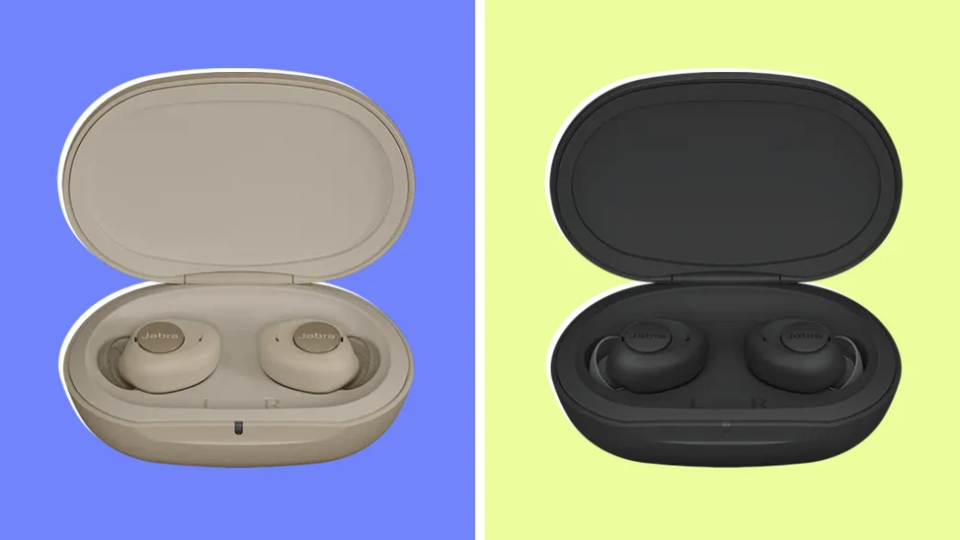
Our reviewer loved Jabra's new Enhance Plus Buds. The associated app tests your hearing and programs the buds for you, so you have custom-tuned hearing enhancement in under five minutes. The buds come with three preset modes: Adaptive, Focus and Surround. We found that the Adaptive mode worked well in a variety of environments, and it was the most-used preset during our testing.
With sound quality and customization rivaling those of prescription hearing aids, the price tag of $799 is even more impressive. You can even choose from black or white bud colors.
3. Eargo
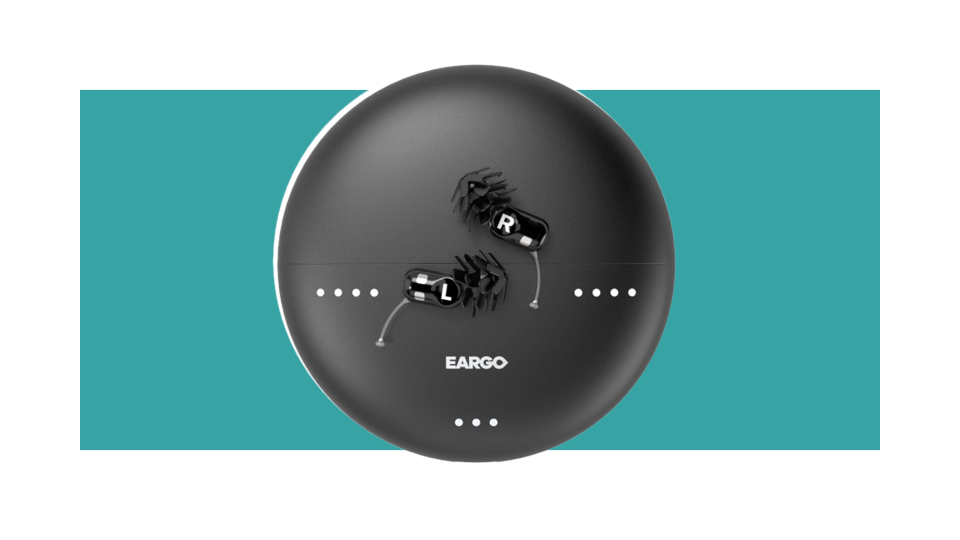
While many hearing aids sit behind the ear and deliver sound to the ear canal through a tube that loops over the ear, other models, such as Eargo, fit completely inside the ear, making them practically invisible. Eargo offers a free online hearing assessment, lifetime support, and it will even send you a nonworking sample so you can see how the aids feel when worn.
4. Lively

Lively offers three different hearing aids: the Lively 2 Pro, the Lively 2 Plus, and the Lively 2 Lite. They range from $1,195 to $1,695 per pair. While that is a large chunk of change, it’s still a fraction of what prescription hearing aids cost. If you buy through Lively, you can get a 100-day trial, three years of support from an audiology team, and a three-year loss and damage warranty.
5. Audien
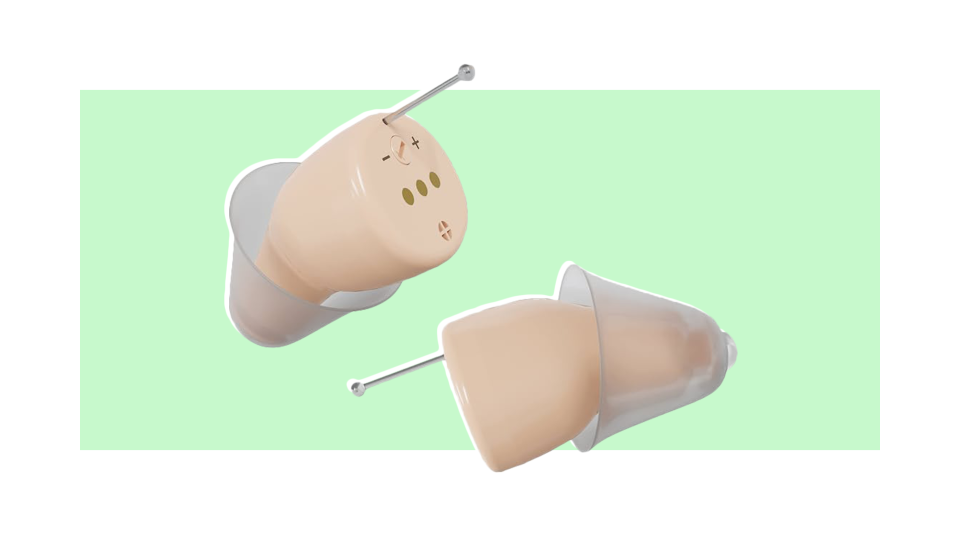
If you’re looking to get hearing aids on a tight budget, it’s definitely worth looking at Audien Hearing. Its cheapest hearing aid, the Audien Atom, has wireless charging, a limited money back guarantee, and a one-year warranty. All that, and it rings up for only $80.
It offers a wireless charging dock, and reviewers love how discrete these aids are thanks to their tiny size. As you might expect for this price, you don’t get a ton of bells and whistles. But if you just need to amplify sounds, it’s worth giving these a try. They are not FDA approved and are technically a personal sound amplification device (PSAP), not a hearing aids.
6. MDHearing
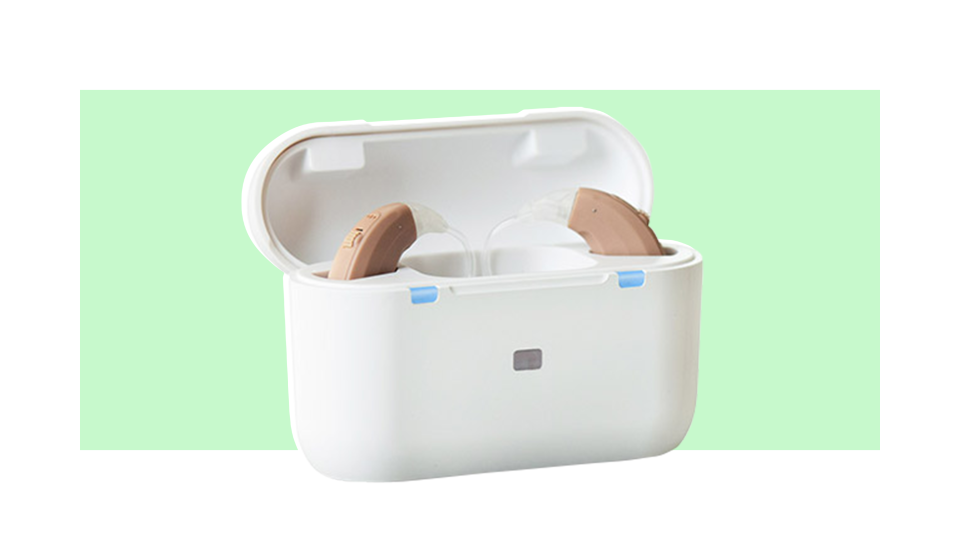
MDHearing’s budget-friendly hearing aids range from $300 to $700. Its lineup includes both battery-powered and rechargeable aids, and the more expensive models feature intelligent noise reduction. They all offer four different environment setting presets, and their top-of-the-line model, the Volt Max, has smartphone compatibility.
As with so many other over the counter hearing aids, you’ll get 45 days with these to try them out with no risk. The warranty, however, is only 90 days from the time you receive your order, so make sure you work them hard during your 45-day trial period.
7. Nuheara
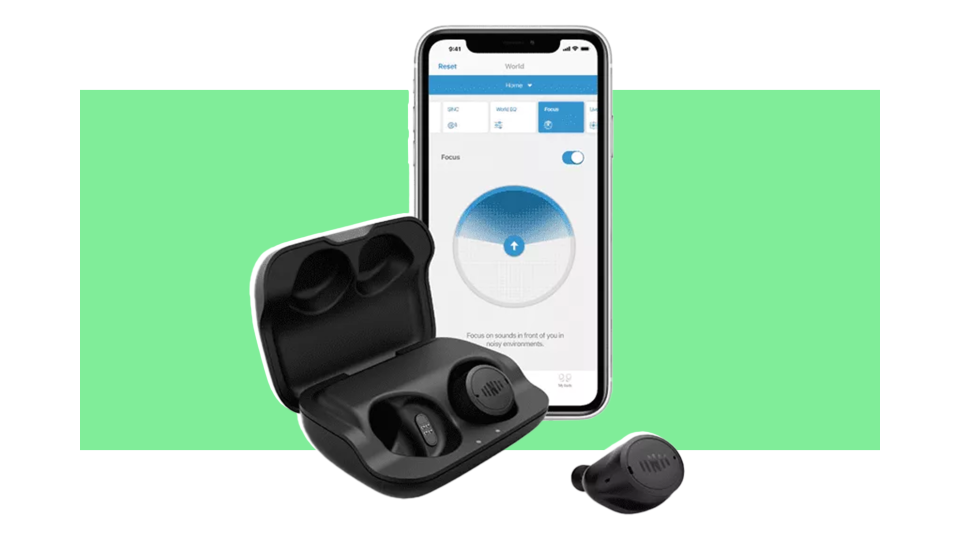
Nuheara makes one model of hearing aid, the IQ Buds2 Max; a TV streaming box; and a Bluetooth transmitter. The TV streaming box does exactly what you would think: it transmits stereo sound from the TV’s output to your IQ Buds.
The Bluetooth transmitter can be plugged into any audio device that has a 3.5 millimeter jack and then transmits that signal to your hearing aids. Many modern hearing aids have Bluetooth built in, which would make this equipment unnecessary, but it’s nice that folks who would never use these features don’t have to pay for them.
8. Nano Hearing Aids
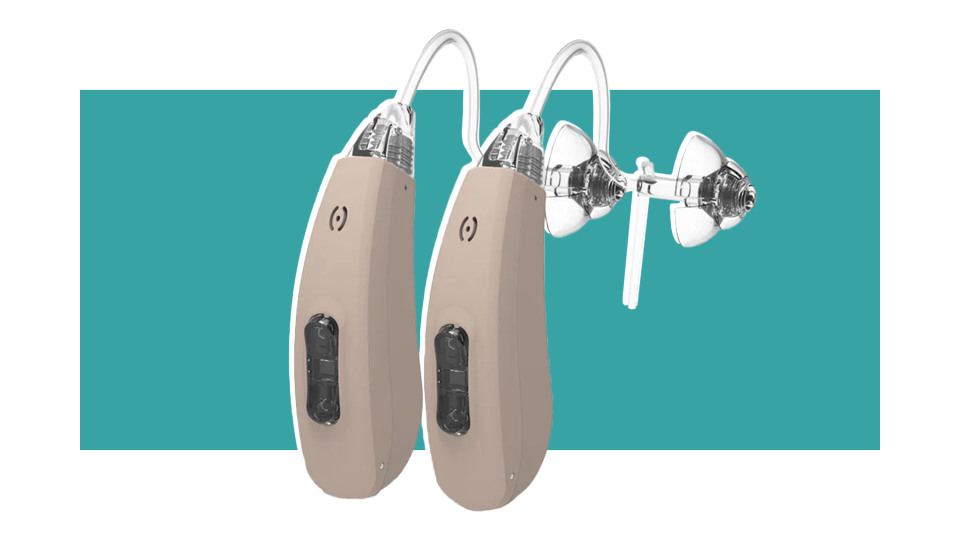
Nano’s lineup includes four different models of hearing aids that range in price from $99 to $697. The lowest-priced model is basically just a sound amplifier. Its design is simple and has large buttons, so these might be great for one who is not familiar with technology and just needs things a little louder.
The top-tier Nano hearing aid is called the Sigma Plus. It’s a rechargeable product that has four different environment settings, and perhaps the coolest thing is that, in the accompanying app, you can take a hearing test, tap a button, and you’re hearing aids will adjust to your test results.
9. Go Hearing Go Prime Hearing Aids
The Go Prime hearing aids from Go Hearing are sold at some major retailers for as low as $300. They have three preset sound levels, as well as feedback cancellation and noise reduction technology to help provide the cleanest signal possible.
Perhaps the most impressive stat with regard to these affordable hearing aids is their battery life. Not only do they persist up to 30 hours on a single charge, but the included charging case also stores up to six additional charges for times when you might be on the go without an outlet. These don't have any fancy apps or smartphone requirements either. Just put them in your ears, adjust to your liking and you're ready to go.
10. Lucid Hearing fio Premium Rechargeable Hearing Aids

Lucid Hearing has the most expensive hearing aid on this list with its fio premium hearing aid, but its makers promise a level of quality that's well worth the price. It has four audio presets that can be further tuned by a companion app, supposedly "superb sound quality" and a rechargeable battery that lasts up to 16 hours per use.
As an added benefit for the higher expense, Lucid also makes a point to advertise that its technical support team is widely available to ensure any concerns one may have about the product are quickly addressed. That said, by leveraging data accumulated from more than 500 Lucid Hearing clinics, this maker believes its hearing aid is one of the best all-day options money can buy.
How OTC hearing aids are regulated – What the terms mean
To be described as a hearing aid, a product needs some FDA oversight of how it’s made, and potentially how well it works.
FDA Registration
The FDA classifies medical devices, including hearing aids, based on the risk they pose to the user. OTC hearing aids fall into the low-risk Class I group and are often described by the manufacturer as FDA registered.
Registration means that the FDA knows where a product is made, and the manufacturer has supplied information to the FDA about their facility and how they make their products.
Importantly, registration doesn’t mean that the FDA has checked how well the product works, but it implies that the manufacturer has a quality control system to ensure the products are well made.
Registration is a good sign. It has to be renewed every year and needs a ton of paperwork and a hefty registration fee. So an FDA-registered manufacturer is open to oversight and willing to go the extra mile to keep that registered status.
FDA Clearance
Some OTC hearing aids, like the Lexie B2 Bose, are FDA cleared. Clearance means a higher level of FDA oversight than FDA registration.
For the Lexie, this focused on the self-fitting app, and needed the company to show that using the app gave the same performance as having the hearing aid fitted by an audiologist.
So, FDA clearance carries more weight than registration because the manufacturer had to show that the product worked as intended.
No FDA Registration or Clearance
If the manufacturer isn’t part of the FDA’s oversight system, they shouldn’t describe their product as a hearing aid.
A product without FDA registration or clearance isn’t necessarily bad. Good quality PSAPs use the same tech as hearing aids, but you should probably be more cautious before you buy, and research user reviews carefully.
Useful Links
If a manufacturer is FDA registered, you should be able to find them on the FDA's Establishment Registration & Device Listing page. If there has been further testing for product clearance, it should also show up as a 510(k) Premarket Notification.
Get deals and shopping advice delivered straight to your phone. Sign up for text message alerts from the experts at Reviewed.
The product experts at Reviewed have all your shopping needs covered. Follow Reviewed on Facebook, Twitter, Instagram, TikTok or Flipboard for the latest deals, product reviews and more.
Prices were accurate at the time this article was published but may change over time.
This article originally appeared on Reviewed: OTC hearing aids you can buy now from Bose, Lively, and more
